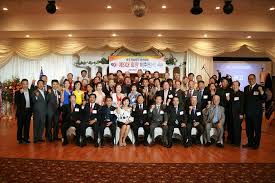CA
ON
부동산캐나다 (Korean Real Estate Post)
전화: 416-449-5552
1995 Leslie Street Toronto, ON
.jfif)
조준상 (로열르페이지 한인부동산 대표)
전화: 416-449-7600
1993 Leslie St. Toronto, ON

대형스크린,LED싸인 & 간판 - 대신전광판
전화: 416-909-7070
4065 Chesswood Drive Toronto, ON

럭키 여행사
전화: 416-938-8323
4699 keele st.suite 218 toronto Ontario M3J 2N8 toronto, ON

호남향우회 (토론토)
전화: 647-981-0404
7 Bishop Ave. #2411 Toronto, ON

토론토 기쁨이 충만한 교회
전화: 416-663-9191
1100 Petrolia Rd Toronto, ON

고려 오창우 한의원
전화: 416-226-2624
77 Finch Ave W #302, North York Toronto, ON

변호사 정찬수 법률사무소
전화: +82 2-536-1144
서울특별시 서초구 서초동 Toronto, ON
1.jfif)
행복부동산 -수잔정 Home Standards Brickstone Real
전화: 647-866-7878
180 Steeles Ave W Unit 30, Thornhill, ON

놀부 - 한식/일식/중식
전화: 416-221-4700
3 Elmhurst Ave, North York, ON

싸인건설
전화: 416-909-7070
4065 Chesswood Dr. North York, ON
0.jfif)
럭키조경 & 나무자르기
전화: 647-564-8383
4699 Keele St. Unit 218 Toronto, ON

It would be a place where all the visitors including me share the life stories and experiences through their activities,especially on life as a immigrant.
Why don't you visit my personal blog:
www.lifemeansgo.blogspot.com
Many thanks.
블로그 ( 오늘 방문자 수: 199 전체: 267,410 )
제 4차 6자 회담 합의문 내용.
lakepurity
2005-09-19
6자회담 막바지에 중국의 중재안이 채택되여 합의문을 발표했다.
내용은 북한이 먼저 핵무기 개발계획을 포기하고, 다른 참가국은 그대가로 경제 원조및 경수로 원자력 발전소를 건설해 주는 조건으로 보인다.
하지만, 11월 초에 다시 모임을 갖고, 구체적인 내용을 토의 하기로 하고
회의를 페회 했다고 하는데, 이 구절이 바로 북한이 다음 회담때 트집을 잡고 또 어떤 요구를 할지 걱정이 앞선다. 핵폐기는 언제부터 실행하며, 경수로및 경협은 또 언제부터 어떤절차를 밟아서 해야 하는지등의 구체적인 내용이 없기에, 이점이 바로 북한의 술수에 다른 참가 5개국이 넘어간것 같아 안타깝다. 북한의 김정일 집단의 청개구리뛰기식의 망나니짖을 참가국가들이 허용한 셈이니..... 그대가를 11월초 재회담에서 어떻게 나타날지 자못 궁금하고, 걱정이 된다.
CNN 방송의 Jill Dougherty 기자의 폐쇄된 북한 김정일 치하의 사회상 취재기사는 김정일괴수와 그일당의 무자비함을 잘 나타내고 있다.
원문은 아래에 있읍니다.
----------------------------------------------------------------
조금전에 유엔 총회에서, 북한대표 Choe Su Hon은 먼저 미국이 경수로발전소를 건설해줘야, 북한이 핵무기 해제를 할것이다라고 떠들어 대는CNN이 인터넷 기사로 보도했군요. 이성적으로, 외교적으로 도저히 상대가 안되는 김정일집단의 생떼를 6자회담 참가국 모두가 잘 알면서도, 선명히 명문화 하지않은 합의문을 채택한것을 크게 후회하게 됐군요.
이제 UN에서도 곡물원조를 중단한다는데.... 남한 국민들만 또 큰 짐을 떠맡게 됐군요. 김정일이의 앞잡이들이 정권을 쥐고 있는한은 말입니다. 경제가 어려워 다시 연탄을 사용하는 가정이 늘어난다는데.....
아래 원본을 참조 하시면 더 이해가 잘될것으로 사료되여 옮깁니다.
Text of Joint Statement From Nuclear Talks
By THE ASSOCIATED PRESS
Published: September 19, 2005
Filed at 1:22 a.m. ET
Text of the joint statement issued Monday by six nations at talks in Beijing on North Korea's nuclear program:
For the cause of peace and stability on the Korean Peninsula and in northeast Asia at large, the six parties held in a spirit of mutual respect and equality serious and practical talks concerning the denuclearization of the Korean Peninsula on the basis of the common understanding of the previous three rounds of talks and agreed in this context to the following:
1) The six parties unanimously reaffirmed that the goal of the six-party talks is the verifiable denuclearization of the Korean Peninsula in a peaceful manner.
The Democratic People's Republic of Korea (North Korea) committed to abandoning all nuclear weapons and existing nuclear programs and returning at an early date to the treaty on the nonproliferation of nuclear weapons (NPT) and to IAEA (International Atomic Energy Agency) safeguards.
The United States affirmed that is has no nuclear weapons on the Korean Peninsula and has no intention to attack or invade the DPRK with nuclear or conventional weapons.
The ROK (South Korea) reaffirmed its commitment not to receive or deploy nuclear weapons in accordance with the 1992 joint declaration of the Denuclearization of the Korean Peninsula, while affirming that there exist no nuclear weapons within its territory.
The 1992 joint declaration of the Denuclearization of the Korean Peninsula should be observed and implemented.
The DPRK stated that it has the right to peaceful uses of nuclear energy.
The other parties expressed their respect and agreed to discuss at an appropriate time the subject of the provision of light-water reactor to the DPRK.
2) The six parties undertook, in their relations, to abide by the purposes and principles of the Charter of the United Nations and recognized norms of international relations.
The DPRK and the United States undertook to respect each other's sovereignty, exist peacefully together and take steps to normalize their relations subject to their respective bilateral policies.
The DPRK and Japan undertook to take steps to normalize their relations in accordance with the (2002) Pyongyang Declaration, on the basis of the settlement of unfortunate past and the outstanding issues of concern.
3) The six parties undertook to promote economic cooperation in the fields of energy, trade and investment, bilaterally and/or multilaterally.
China, Japan, the Republic of Korea (ROK), Russia and the U.S. stated their willingness to provide energy assistance to the DPRK. The ROK reaffirmed its proposal of July 12, 2005, concerning the provision of 2 million kilowatts of electric power to the DPRK.
4) Committed to joint efforts for lasting peace and stability in northeast Asia. The directly related parties will negotiate a permanent peace regime on the Korean Peninsula at an appropriate separate forum.
The six parties agreed to explore ways and means for promoting security cooperation in northeast Asia.
5) The six parties agreed to take coordinated steps to implement the aforementioned consensus in a phased manner in line with the principle of ''commitment for commitment, action for action.''
6) The six parties agreed to hold the fifth round of the six party talks in Beijing in early November 2005 at a date to be determined through consultations.
----------------------------------------------------------------
North Korea: A prism to Soviet era
A journalist's notebook offers a rare glimpse into a closed society
By Jill Dougherty
CNN Managing Editor, Asia Pacific
Wednesday, September 14, 2005; Posted: 11:07 p.m. EDT (03:07 GMT)
Jill Dougherty is Managing Editor of CNN International Asia Pacific. She was previously CNN's Moscow bureau chief. In August, she traveled to North Korea with CNN Senior Asia Correspondent Mike Chinoy.
North Korea remains an enigma to outsiders (3:06)
SPECIAL REPORT
North Korea
Kim Jong Il
or Create Your Own
Manage Alerts | What Is This? (CNN) -- I thought I was prepared for North Korea. After all, I'd spent more than half my life studying, traveling to and living in the former Soviet Union as well as other Communist and post-Communist countries.
So, as we arrived at Pyongyang airport, I felt oddly at home. The same empty airport as in Leningrad in 1969. (In the North Korean capital we later found out our flight was the only one scheduled for arrival that day.)
Staring down at our plane as we taxied to the terminal, a huge color portrait of Kim Il Sung, North Korea's "Great Leader".
No matter where we went over the next nine days, the gaze of Kim Il Sung, or his son, Kim Jong Il, the current ruler known as the "Dear Leader," would follow us, from portraits hung on buildings, monuments, bridges ... to lapel pins on the chests of almost everyone we met, including the two men who greeted us, Mr. Jang and Mr. Song, who would be our guides, minders and controllers for the duration of our stay.
In 1969, arriving in Russia as a student, it seemed that every street I traveled was decorated with the image of Vladimir Lenin, father of the Russian revolution. Adults wore lapel pins with images of the Bolshevik leader, children wore little "Baby Lenin" pins.
"Lenin lived, Lenin lives, Lenin will live." I was told, and so does Kim Il Sung, who died in 1994. Even in death, the Communist leaders have something in common: their bodies are embalmed and lie in glass-covered coffins, on display in mausoleums in Moscow and Pyongyang. Russian experts reportedly helped the North Koreans with the cosmetic aspects of political immortality.
The streets of the North Korean capital reminded me of Moscow in the 1960s. Almost no traffic, just official cars whizzing down empty boulevards, curtains pulled shut to protect elite Communist party members from the prying eyes of pedestrians. In Moscow they used to drive long black Zils or Volgas. In Pyongyang, it's mostly older Mercedes, often an incongruous baby blue.
In any country, one of the best ways to see how people live is to visit the food stores and markets. For several days we pestered our North Korean guides to take us to markets where the first tiny buds of capitalism are sprouting, the government allowing people to sell fruits and vegetables -- one way of relieving the food shortage in the North.
In search of state-owned food stores, I went for a walk one evening in town, without a guide. The stores were closed, it was a holiday, but as I peered through the darkened window of one shop I went back in time to the stores I saw in Russia a quarter century ago. A few tin cans of fish stacked neatly in pyramids, a half-bare counter displaying a few lonely onions and cucumbers. This was in the capital, much better provisioned than the countryside, where North Koreans often go hungry.
Choreographed encounters
The North Korean government holds a reporting convention in Pyongyang.In Russia, our guides went to extraordinary lengths to control what we saw and limit our interaction with average people. Mr. Jang and Mr. Song must have studied at the same guide school. Their mentality was the same: make sure we saw nothing that could reflect negatively on the government or Communist Party leadership.
One morning, as we were driven out of Pyongyang to a mountain resort ensuring we would be kept far from any interaction with ordinary people, we asked our guides to let us stop by the road and shoot some pictures of the countryside.
Grudgingly, they agreed. Suddenly, the young one, 29-year-old Mr. Jang, sporting a sleek black pompadour and a smirk, told us to stop. "There is an old woman down there," he explained. Presumably, her bent back was not what he wanted on tape.
Our older guide, Mr. Song, a former diplomat, was more flexible. He cracked a smile when I told him of how my Soviet escorts back in the 1970s took us on a boat ride down the Volga, refusing our pleas to stop along the way. At one deserted spot we were allowed to pull into shore for a picnic lunch. Several of us set off on foot to see what we could find. In a tiny village, we came upon a lovely young woman wearing makeup. When we complimented her on how nice she looked she said: "They told us you were coming."
Knowing that virtually every encounter is choreographed in advance creates a strange mind-warp. In Pyongyang we asked to see some of the everyday life in North Korea and our guides finally took us to the city park, a magnificently beautiful expanse of hills and trees.
Hearing drumming in the distance, I walked swiftly to see where it was coming from. A few minutes away I spotted an open-air pavilion filled with older Koreans, most of them women in traditional flowing dress, cinched at the bust with a sash. They were singing, dancing and laughing uproariously, some of them beating out a rhythm on small red-painted drums shaped like an hourglass. I begin taking pictures. They simply smiled and kept dancing.
Mr. Song caught up and we both surveyed the scene, utterly charming in its simplicity and gaiety. He turned to me with a smile and said, "They knew you were coming." Was he pulling my leg? Was he telling the truth? I guess I'll never know but I prefer to think that at least this encounter with Koreans was not scripted.
The North may have a hard-edged image in the world of fierce militarism and, just as in the old Soviet Union, much of life is run like the army, with group -- not individual -- activities the norm. Yet, in spite of that hard-edged atmosphere, there is an incongruous feeling of primness, as well.
In Pyongyang, 20-something traffic girls direct the non-existent traffic, robot-like in their white uniforms, black hair pulled back in identical World War II-style chignons. They remind me of little Russian girls in their starched school uniforms, organdy bows in their hair.
Women in Moscow dressed neatly, but modestly, with no access to imported clothes. It's much the same here in Pyongyang yet there is one sign of changing times in today's North Korea: a flash, here and there, of modest jewelry, unthinkable just a short time ago.
Following the Great Leader
Students drill for the coming birthday of Workers' Party of Korea, which falls on October 10.How to understand what people really think and feel? It's a question I asked myself so many times in Russia and it hounds me here in North Korea. There was no way for our CNN crew to blend in, with our Western clothes, Western looks and our mandatory silk arm bands, given to us by our Foreign Ministry minders, navy blue with white lettering identifying us as journalists.
In Russia, beneath the surface of repressive political control, if you looked hard enough, and spoke the language, you could sometimes find those lonely dissidents living in "internal migration" rejecting the pressure to conform.
In North Korea, conformity is taken to a degree I never imagined possible. At the "Airarang," the mass gymnastics show celebrating the 60th anniversary of the end of Japanese occupation of Korea, thousands of performers dressed in military uniforms re-enact the battles and suffering that gave birth to their country.
Before the show, a murmuring in the audience builds to a buzz. The personal photographers of Kim Jong Il suddenly appear close to the seat of honor. As the short, rotund leader enters the stadium, the audience leap to their feet, clapping rapturously as "Dear Leader" applauds them back.
Do they believe in Kim? Believe in his "juche" philosophy of extreme self-reliance? Unable to speak Korean, cut off from unscripted meetings with Koreans, I have no answer.
Young Mr. Jang tries to explain it to me: Korea, he says, is like a rabbit. "Its face is toward China. Its back is toward the United States. Its ass is toward Japan. Its mouth is toward Russia."
Korea, he tells me, needs no one. Its unity is its weapon. Surrounded by enemies, it must look to itself to survive.
In the mountains a two-hour drive from Pyongyang, there is a massive museum cut into the mountainside, built to house all the gifts given by international leaders to Kim Il Sung and his son, Kim Jong Il. I ask what is the first gift Kim Il Sung was given?
The guide, an elegant woman in traditional dress, sweeps though the cold marble corridors, leading us to a room where a full-size train car stands, its elaborate wood interior and brass lamps buffed and polished, a gift from Soviet ruler Joseph Stalin.
Down one more corridor to a final room on our tour, the diminutive guide tugs at the door and I gasp. A life-size figure of the Great Leader, dressed in a suit, standing amid trees near a lake, mountains in the distance. It is eerily real. Even the leaves on the trees rustle as a breeze (from a hidden fan?) blows by.
The music is solemn, stately. Mr. Jang and Mr. Song stand reverently and bow. The Great Leader stares blindly into the distance. Does he know where his country is headed?
----------------------------------------------------------------
N Korea: U.S. reactors 'essential'
Thursday, September 22, 2005; Posted: 6:21 p.m. EDT (22:21 GMT)
North Korea's Choe Su Hon prepares to speak at the U.N. General Assembly.
Manage Alerts | What Is This? UNITED NATIONS (CNN) -- North Korea wants the United States to provide light-water nuclear reactors "as soon as possible" to demonstrate Pyongyang's right to peaceful nuclear acitivities, North Korea's deputy foreign minister said Thursday.
Speaking in the U.N. General Assembly, Choe Su Hon said, "What is most essential at this stage is for the United States to provide light-water nuclear reactors to the DPRK as soon as possible as evidence proving the former's substantial recognition of the latter's right to peaceful nuclear activities.
"We will watch closely to see how the United States will move in actuality at the phase of 'action for action.'"
While Choe mentioned the agreement reached Monday at six-party talks in Beijing, he said nothing about North Korea's pledge under that agreement to give up its pursuit of nuclear weapons in return for energy and security guarantees.
North Korea's call for light-water reactors at this stage has raised questions about its desire to stick to the agreement.
U.S. officials have downplayed North Korea's statements in recent days. On Tuesday, Condoleeza Rice speaking at the United Nations, said, "I think we will just stick with the text of the Beijing agreement to which the North Koreans signed on."
Choe repeated his government's position that it is its goal to denuclearize the Korean peninsula and that the North Korean pursuit of nuclear weapons is "a direct product of the United States' hostile policy" towards his country, which is formally known as the Democratic People's Republic of Korea, or DPRK.
On Tuesday, Rice told reporters at the United Nations: "The text of the agreement says that we'll discuss a light-water reactor at an appropriate time. There were several statements afterwards that make clear what that sequence is."
She said those steps included: North Korea abandoning all nuclear weapons and existing nuclear programs, returning to the nuclear non-proliferation treaty (NPT) and abiding by International Atomic Energy Agency safeguards.
Only then could the issue of light-water reactors be discussed, Rice said.
Russian Foreign Minister Sergei Lavrov, whose country took part in the six-party talks that led to the agreement, said on Tuesday: "The text was very carefully agreed upon and it was the subject of very difficult compromises, but it clearly sets forth the consistency of the steps which have to be taken so that we might talk about cooperation in the development of nuclear energy in North Korea."
He added, "The most important thing now is to see to it that this agreement be carried out in practice, and this involves a great deal of work ahead and we hope that it will begin soon."
Rice met with Chinese Foreign Minister Li Zhaoxing Tuesday in New York. According to U.S. State Department spokesman Sean McCormack, "Both agreed that the agreement signed in Beijing by the six parties was the binding text for parties, including on the question of light-water reactors."
On Monday North Korea agreed to give up its entire nuclear program, including weapons -- a landmark agreement that was announced in a joint statement from the six-party talks in Beijing.
The joint statement said North Korea had "committed to abandoning all nuclear weapons and existing nuclear programs" and had agreed to return to the NPT and to abide by safeguards established by the IAEA, the U.N.'s nuclear watchdog.
The statement also said that North Korea stated that it has the right to "peaceful uses of nuclear energy." (Full statement)
The agreement came on what was the seventh day of the fourth round of six-party talks. A fifth round of talks has been scheduled for November.
As part of the agreement, the United States, China, Japan, Russia and South Korea "stated their willingness" to provide energy assistance to North Korea, as well as to promote economic cooperation.
The World Food Program has said that North Korea is headed toward the worst humanitarian food crisis since the mid 1990s, when an estimated 1 million North Koreans died. It said 6.5 million North Koreans desperately need food aid. (U.N. to end food aid to N. Korea)
North Korea ordered U.N. nuclear inspectors out of the country nearly three years ago, and it has since said it has a nuclear weapon and continues to pursue producing more.
The United States, along with the four other nations involved in the talks, has said the Korean peninsula must not have nuclear weapons.